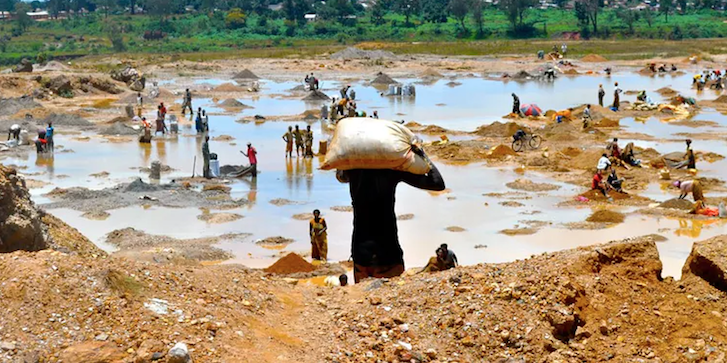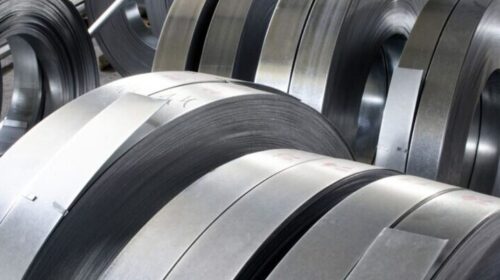DRC: Entreprise Générale du Cobalt still not operational 4 months after its official launch
The Congolese government, in order to improve the conditions of artisanal miners, created the Entreprise Générale du Cobalt (EGC) by decrees 19/15 and 19/16 of November 5, 2019. EGC, as a subsidiary of Gécamines now has a monopoly on the purchase, treatment, transformation, sale and exploitation of cobalt in the Democratic Republic of the Congo.
It is within this framework that EGC signed a financing agreement with the international firm Trafigura which will support the company, from the production of Cobalt to sale to end buyers.
“By decreeing a monopoly on the purchase, processing and marketing of artisanal cobalt by the Entreprise Générale du Cobalt, the control and regulation of the sector by ARECOMS, the State has tackled head-on a system that “one can qualify as quasi mafia of the exploitation of the Congolese artisanal cobalt. From now on, all the Congolese artisanal cobalt will be bought by EGC, will be transformed by EGC and will be marketed by EGC”, declared Albert Yuma during the official ceremony of the launching of the EGC activities in March 2021.
Four months therefore after the official launch of activities, EGC is not in a position to actually start its work in the mining site chosen for this purpose. The Kasulo site, located in Kolwezi in Lualaba province, is the first to be chosen for operation, but it is currently occupied by a firm called CDM, according to a source familiar with the matter.
“This is what is blocking the EGC today, these are constraints of the politicians. The EGC has selected the Kasulo site. This site is currently occupied by a Chinese company. It must be evacuated. It is this. which prevents us from starting our work. We do not understand, the authorities do not clearly ask this company to evacuate, “the source said.
On the EGC side, we want the State to apply the law rigorously, in accordance with decrees 19/15 and 19/16 which reserve the monopoly of artisanal mining and the marketing of cobalt to EGC alone.
Recall that from August 17 to 18, 2021, a team from EGC and FEC visited the Kawama and Tiluezembe sites to assess the craft activity. The conclusions of this visit reveal that the miners are exploited, the highest salary comes to 220,000 Congolese francs per month, or barely 110 US dollars.
It should be noted that the global demand for cobalt is booming thanks to the strong growth of the electric vehicle industry and through the deployment of new networks and mobile handsets, knowing that 5G mobile handsets require 20% more cobalt. than equivalent 4G models. Projections estimate that global demand for cobalt will double by 2030, from 145,000 tonnes in 2020 to 290,000 tonnes in 2030. And the DRC will be the major supplier of cobalt to the global industry.
The Democratic Republic of the Congo has 80% of the world’s Cobalt reserve in its territory alone. With these good prospects on the demand for cobalt in the world, the Entreprise Générale du Cobalt has all its role to play in the control of the process of artisanal exploitation of this strategic mineral in order to improve the working conditions of artisanal miners and protect vulnerable populations. One of the goals of EGC is to increase income from artisanal mining. It is estimated that around 2 million people work in artisanal cobalt mining in the DRC.
The Congolese State created the EGC to work closely with the Regulatory Authority for Strategic Mineral Substances (ARECOMS) in order to formalize the supply chain of cobalt produced by ASM so as to preserve and promote as a priority respect for human rights, safety and environmental standards. These principles are enshrined in EGC’s “Responsible Mining Standards”, or “EGC Standards”. These standards have been developed by the Technical Committee of EGC in accordance with international best practices and in line with the legislation of the Democratic Republic of Congo.
![]()





